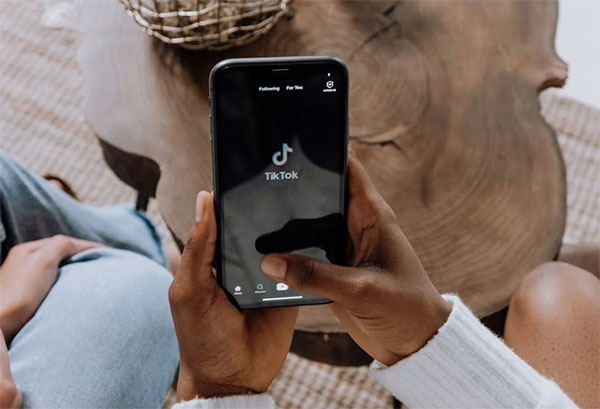Over the past half a decade, TikTok has gone from scrappy upstart to the fourth-largest social media platform in existence. Is this trend going to continue? Or is the TikTok bubble about to burst?
Quick Answer:
Nobody knows how long TikTok will last. Some analysts point to the failure of other short-form video platforms like Vine. Others point to TikTok’s growing user base and popularity with Generation Z. Nobody has a crystal ball – but for influencers, the rule remains the same. Make your content available on as many platforms as possible. That way, your success doesn’t depend on the success or failure of a single app.
Will TikTok Fail?
At first glance, TikTok might seem primed for massive future success. But if you’ve been watching the social media universe for long enough, it’s tough not to be cynical. Back in 2012, Twitter spent big money to buy Vine – another short-form video app with a young audience. In 2019, the platform went offline completely.
There are plenty of parallels between Vine and TikTok. Both catered to a younger audience. Both focus on short-term videos rather than longer ones. Additionally, both gave birth to several internet celebrities who rapidly gained a new following. Today, groups of TikTok influencers live together in trendy homes in LA. A decade ago, up-and-coming Vine influencers were doing the same thing.
Boom-bust stories are everywhere in business. When Vine was the hottest new social media platform, Forever 21 was one of America’s biggest retailers. In 2022, Forever 21 declared bankruptcy.
This isn’t to say that TikTok is doomed to repeat the pattern. YouTube and Facebook have both been around for years and don’t seem to be going anywhere. But it’s worth taking a deeper look at the platform’s underlying strengths and weaknesses.

Basic TikTok Statistics
Before we talk about whether or not TikTok is going to fail, let’s go over the basics. At the time of this writing, TikTok has just over a billion monthly active users. That puts it in the number four spot behind Facebook’s 2.9 billion users, YouTube’s 2.2 billion, and Instagram’s 1.4 billion. 138 million of these active monthly users live in the US – more than a third of the population.
This has translated into incredible growth. Among US users aged 18 and over, there were 39.2 million unique users in the month of April, 2021. That was more than three times the 12.6 million users in April of 2020.
Growth since then hasn’t been quite as explosive, but the user base continues to expand. Compare that to Facebook, which is ever so slowly losing users. App downloads have also been steady, with billions of total downloads.
One thing that surprised us was how diverse the TikTok userbase is age-wise. We thought TikTok was just for younger people – and, to be fair, 32.5% of US users are aged 10 to 19. A further 29.5% are in their 20s. But 16.4% of users are aged 30 to 39, 13.9% are in their 40s, and 7.1% are aged 50 or older. If it follows the trend of other social media platforms, older users will continue to join over time.
Why TikTok Could Fail
Now that we’ve looked at the numbers, let’s talk about why TikTok could be in trouble. Here are some concerns:
- The content is repetitive – Everyone loves amateur creators, but short-form videos eventually fall into predictable patterns. How many 15-second dance clips does the world really need? How many creators can possibly become successful by reacting to other creators? It’s tough to say. But it’s possible that audiences of all ages will simply become bored with TikTok.
- Advertising could ruin the fun – Given TikTok’s rising popularity and the huge interest from advertisers, they might start running too many ads. Users will tolerate a certain amount of advertising. But if the service starts running an excessive amount of ads, viewers may turn elsewhere.
- Advertisers could flee the platform – Remember when YouTube got in trouble with advertisers for running ads during controversial videos? YouTube had Google’s money behind it and was able to weather the storm while they revamped their ad policies. If TikTok gets into trouble with advertisers, they may not be able to recover.
- Copyright claims could stifle creativity – TikTok makes it easy to remix audio from one video into another, or vice-versa. One of the most popular video genres is lip-syncing. In some cases, this won’t be a problem. If a celebrity has made a public post, TikTok’s Terms of Service give other users the right to remix it. The problem comes when people lip-sync songs that aren’t on TikTok. Record labels have held off on making any copyright claims for now. But if TikTok starts to offer any real monetization opportunities, expect that to change quickly.
- Security concerns – Many western users have security concerns, since TikTok is owned by a Chinese company called ByteDance. As of January, 2023, TikTok is now banned on all government-owned devices. Many universities are also banning TikTok on their networks. Congress is even considering banning ByteDance from doing business in the US. If that happens, it would have a huge impact on English-language TikTokkers.
- YouTube Shorts could steal the market – While YouTube Shorts aren’t as popular as TikTok, they’re a much newer format. Moreover, they’re backed by Google’s deep pockets. And as of this month, YouTube is now allowing Shorts videos to be monetized. This is a huge incentive for the most popular TikTok creators to switch platforms. If their fans leave with them, TikTok could be in real trouble.

Why TikTok Could Continue to Thrive
We’ve talked about all of TikTok’s challenges, but there are also some bright spots in its outlook. Here are some things that work in TikTok’s favor:
- It’s frictionless to use – Go to YouTube, Facebook, Instagram, or Twitch, and you’ll be prompted to sign up before you can watch any videos. Download the TikTok app, and you can start watching videos right away. In fact, you never need to create an account unless you decide to become a creator. This makes TikTok very attractive to new users, since you don’t have to do a bunch of work.
- It has its own subculture – Like Vine before it, TikTok has spawned a number of minor celebrities. A group of 19 of them have even moved into an LA mansion called Hype House. The cool thing is that all of these people appear in the backgrounds of each-others’ videos. In a way, it’s like reality TV. And just like YouTube, all the best videos have a certain feel to them. When you’re watching TikTok, it’s not like watching any other platform.
- It’s easy to share videos – A lot of platforms try to keep all of their content on-platform. For example, YouTube won’t let you share your videos directly to another platform. On TikTok, you can easily share your videos to other platforms. It’s also easy to share links via text, rather than via the app. If that’s not enough, you can save videos to your phone and watch them later.
- It’s constantly changing – Over the years, TikTok has constantly added new effects for their videos. They’ve implemented things like duets, which became one of their most popular features. They’ve even started allowing longer videos. Over time, the original 15-second limit has been extended first to 30 seconds, then to 10 minutes. All of this innovation indicates that TikTok can continue to evolve in the future.

Is TikTok Like Vine?
At the beginning, we compared TikTok to Vine, and outlined some comparisons. But what actually happened to Vine, and could it happen to TikTok?
Some platforms, like MySpace, die with a whimper. They slowly lose users over time until they become irrelevant. That’s not what happened to Vine. One minute Vine was the most popular platform out there. The next, it was out of business.
The problem with Vine was that it was never meant to be a traditional media streaming platform. The original concept was for people to share short clips with their own friends, or “Vine.”
This worked well at the start, but when the platform ballooned to hundreds of millions of users, it failed. The viral nature of social media caused a few users to become famous. Instead of a communications platform for groups of friends, Vine had turned into a video platform. Most users were now passive consumers of the most popular content.
Vine didn’t set out to compete with YouTube. But when their celebrity users became famous enough, YouTube lured them away with better monetization. Almost overnight, Vine lost most of its most popular creators, and it ultimately failed.
It’s debatable whether TikTok is vulnerable to the same phenomenon. On the one hand, TikTok does have several celebrity users. But the short-form nature of the videos and the nature of the algorithm fill your feed with everyday people. Will this be enough for TikTok to stay viable if YouTube starts poaching their celebrities? Only time will tell.
Meet Ry, “TechGuru,” a 36-year-old technology enthusiast with a deep passion for tech innovations. With extensive experience, he specializes in gaming hardware and software, and has expertise in gadgets, custom PCs, and audio.
Besides writing about tech and reviewing new products, he enjoys traveling, hiking, and photography. Committed to keeping up with the latest industry trends, he aims to guide readers in making informed tech decisions.

